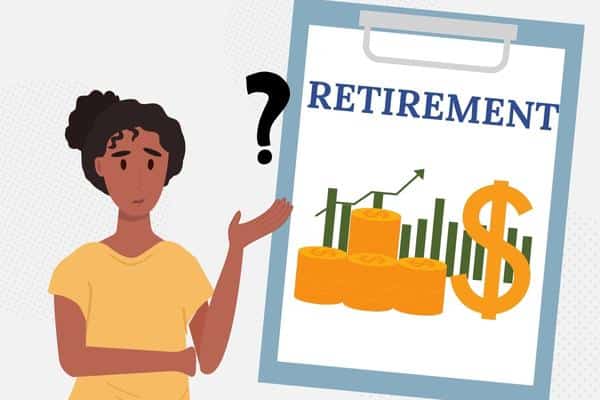Age 62 is the earliest age at which you can start receiving Social Security retirement benefits. Deciding whether to claim now or wait is an important decision. Claiming early Social Security retirement benefits can make sense for some people. However, it permanently reduces your monthly payment amounts and can impact total lifetime benefits. Here’s what to consider before claiming early Social Security retirement benefits at age 62.
How Retirement Benefits Are Calculated
How much you’ll receive in retirement benefits depends on how long you worked and how much you earned.
The Social Security Administration (SSA) uses your 35 highest earning years to calculate your retirement benefits. Years with low or no income reduce your benefit amount. This means that if you had a gap in employment, you may want to continue working as long as possible to achieve 35 years of contributions. Doing so will boost your retirement benefits by replacing a low or zero earnings year with a higher one.
You can review your earnings record online by creating and accessing your Social Security account. The SSA’s Retirement Estimator can help you estimate your future retirement benefits.
Claiming Early Social Security Retirement Benefits
Claiming Social Security benefits at age 62 can prove costly. Your monthly benefit check will permanently decrease by 20-30%. Such a reduction becomes significant over the years.
Delaying Social Security Retirement Benefits
Conversely, you can defer retirement benefits. Benefits can be deferred any number of years until the maximum age of 70. Delaying retirement until age 70 versus commencing at your Full Retirement Age typically increases your annual payout by about 8% for each year you delay. The benefits of deferral can be impactful later in retirement.
When to Claim Social Security Benefits
Whether to apply for benefits at age 62 or defer payments depends upon many factors:
1. Early Social Security Retirement Benefits and Longevity
One consideration is how long you’ll live [1]. If you anticipate a long retirement, delaying retirement benefits could enhance your lifetime payments, as your monthly amount will be higher. Conversely, if you expect a shorter lifespan (perhaps due to an illness), electing early benefits could be more advantageous.
SageVest utilizes software to help clients understand at what age they will benefit from delaying Social Security benefits to facilitate Social Security decisions.
2. Retirement Income Needs
Another important factor to consider is how much income you’ll need in retirement. The amount of income that Social Security replaces varies by everyone. Social Security often replaces a higher amount of income for lower income earners, and a lower percentage of income for higher income earners. This is due to the fact that Social Security taxes stop at a specific earnings level. The result is that higher income earners only gain benefits for a portion of their earnings.
If you project a gap between your retirement income and expenses, waiting to claim Social Security benefits could improve your financial outlook. The longer you work without claiming benefits, the more money you earn (and potentially save), and the higher your future monthly benefit will be.
Your annual cost-of-living (COLA) increase will also be worth more. That’s because it’s based on your initial year’s benefits, so the higher your initial benefit, the greater your annual COLA increase will be in the future.
3. Working and Claiming Early Social Security Retirement Benefits
Another factor that may impact your decision whether to claim early Social Security retirement benefits is if you plan to work and claim benefits. If so, your benefits will be reduced by $1 for every $2 you earn over the annual earnings limit, until you attain your Full Retirement Age.
However, even if your monthly benefit is reduced in the short term because of your earnings, you’ll end up receiving a higher monthly benefit later. That’s because the SSA recalculates your benefit when you reach Full Retirement Age, omitting months in which your benefit was reduced.
4. Health Coverage in Retirement
Even if you start claiming Social Security retirement benefits at age 62, you won’t be eligible for Medicare until you reach 65 years of age. Continuing to work can safeguard your health coverage. Without coverage through Medicare, a work plan, or your spouse’s health insurance, you’ll need to purchase an interim health policy and pay out-of-pocket until Medicare coverage kicks in at age 65.
5. Other Financial and Life Considerations
There are many other factors that might influence your decision to claim Social Security retirement benefits early. For example:
-
- Other sources of retirement income.
- How your income taxes may be affected by benefits.
- Personal considerations such as traveling, volunteering, returning to study, starting a business, pursuing a hobby, or moving your home.
- Dependent family members such as grandchildren or elderly parents.
SageVest Wealth Management understands that your wealth acquires new meaning as you approach and enter retirement. Our customized retirement planning includes a range of ‘what if’ scenarios to help ensure that your financial and life priorities remain aligned as you near and enjoy retirement. Please contact us for more information.
For more helpful articles on retirement and other financial topics, please visit our blog.




